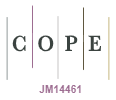Impacts of the COVID-19 pandemic on undergraduate learning assessment practices
DOI:
https://doi.org/10.5585/eccos.n55.18870Keywords:
Higher education, Assessment, Learning, Pandemia, COVID-19Abstract
This article presents a study on the impact of the COVID-19 pandemic, which occurred in the first semester of 2020, on the assessment of undergraduate students' learning. We questioned a group of professors, from different Brazilian universities, about changes in their assessment practices, introduced in the context of remote education and the necessary pedagogical adaptations in the face of the pandemic. The research, of a qualitative and exploratory nature, was carried out through interviews conducted online. The data obtained were submitted to a content analysis approach and theoretical interpretation. The research identified changes in teaching strategies, in the evaluation criteria and in the meanings of the evaluation practices.
Downloads
References
BRASIL. Parecer CNE/CP 5/2020. Reorganização do Calendário Escolar e da possibilidade de cômputo de atividades não presenciais para fins de cumprimento da carga horária mínima anual, em razão da Pandemia da COVID-19. Brasília: CNE, 2020.
BRASIL. Censo da educação superior. Brasília: INEP, 2019.
BRISCOE, G., SADEDIN, S.; DE WILDE, P. Digital ecosystems: ecosystem-oriented architectures. Natural Computing, Basel, v. 10, n. 3, p. 1143–1194, 2011.
CHAUI, M. Escritos sobre a universidade. São Paulo: EDUNESP, 2001.
CARDOZIER, V. R. Colleges and universities in World War II. Westport: Praeger, 1993.
CRODA, J. et al. COVID-19 in Brazil: advantages of a socialized unified health system and preparation to contain cases. Revista da Sociedade Brasileira de Medicina Tropical, Brasília, v. 53, p. 1-6, 2020.
DARIAN-SMITH, K.; WAGHORNE, J. The First World War, the universities and the professions in Australia 1914-1939. Melbourne: MUP, 2019.
DIAS SOBRINHO, J. Avaliação educativa: produção de sentidos com valor de formação. Avaliação, v. 13, n. 1, p. 193-207, 2008.
EISNER, E. The enlightened eye: qualitative inquiry and the enhancement of educational practice. New York: Teachers College Press, 2017.
HADJI, C. Avaliação desmistificada. Porto Alegre: Artmed, 2001.
HADJI, C. Avaliação, as regras do jogo: das intenções aos instrumentos. Porto: Porto, 1997.
HADJI, C. L’évaluation des actions éducatives. Paris : PUF, 1992.
HODGES, C. et al. The difference between emergency remote teaching and online learning. EDUCAUSE Review, Louisville, v. 55, n. 2, p. 1-8, March 2020.
KERR, C. Higher education cannot escape history. New Directions for Higher Education, San Francisco, v. 70, p. 5–17, 1990.
LAANPERE, M. et al. Pedagogy-driven design of digital learning ecosystems. Computer Science and Information Systems, Novi Sad, v. 11, n. 1, p. 419–442, 2012.
LINCOLN, R. College adopts grading policy changes for spring term. The Harvard Gazette, Cambridge, March 2020. Disponível em: https://news.harvard.edu/gazette/story/2020/3/. Acesso em: 10 abr. 2020.
LUCKESI, C. C. Avaliação da aprendizagem escolar: estudos e proposições. 22. ed. São Paulo: Cortez, 2011.
LUZ, A. A. A avaliação no ensino superior. Educar em Revista, Curitiba, v. 13, p. 55-66, 1997.
MAFFESOLI, M. Net-activisme: du mythe traditionnel à la cyberculture postmoderne. Sociétés, Paris, v. 124, n. 2, p. 7-19, 2014.
MAFFESOLI, M. O futuro da universidade. São Paulo: USP, 2012. Palestra. Disponível em: http://iptv.usp.br/portal/video.action?Iditem=10288. Acesso em: 10.mar.2020.
MEANS, B.; BAKIA, M.; MURPHY, R. Learning online: what research tells us about whether, when and how. New York: Routledge, 2014.
MEIRIEU, P. Postuler la compétence. In: UBALDI, J-L. (ed.). Les compétences. Paris: Editions Revue EPS, 2005. P. 11-26.
MEIRIEU, P. A pedagogia entre o dizer e o fazer. Porto Alegre: Artmed, 2002.
MESSICK, S. Meaning and values in test validation: the science and ethics of assessment. Educational Researcher, v. 18, n. 2, p. 5–11, 1989.
MEZIROW, J. Transformative dimensions of adult learning. San Francisco: Jossey-Bass, 1991.
PATTON, M. Q. Qualitative evaluation and research methods. 2. ed. Newbury Park: Sage, 1991.
ROESE, N.; SHERMAN, J. Expectancy. In: KRUGLANSKI, A.; HIGGINS, E. (ed.). Social psychology: handbook of basic principles. 2. ed. New York: Guilford Press, 1997. p. 91-115.
ROMÃO, J. E. Avaliação dialógica: desafios e perspectivas. 6. ed. São Paulo: Cortez, 2005.
RUDY, W. Total war and twentieth-century higher learning: universities of the western world in the First and Second World Wars. Rutherford: Fairleigh Dickinson University Press, 1991.
TITTLE, C.; HECHT, D.; MOORE, P. Assessment theory and research for classrooms: from taxonomies to constructing meaning in context. Educational Measurement: Issues and Practice, Mount Royal, v, 12, n. 4, p. 13–19, 2005.
TAYLOR, J. The impact of the First World War on British Universities. London: Palgrave Macmillan, 2018.
UNESCO. COVID-19 impact on education. Montreal: UNESCO Institute for Statistics, 2020.
Downloads
Published
How to Cite
Issue
Section
License
Copyright (c) 2020 EccoS – Revista Científica

This work is licensed under a Creative Commons Attribution-NonCommercial-ShareAlike 4.0 International License.
- Abstract 2538
- PDF (Português (Brasil)) 2750






